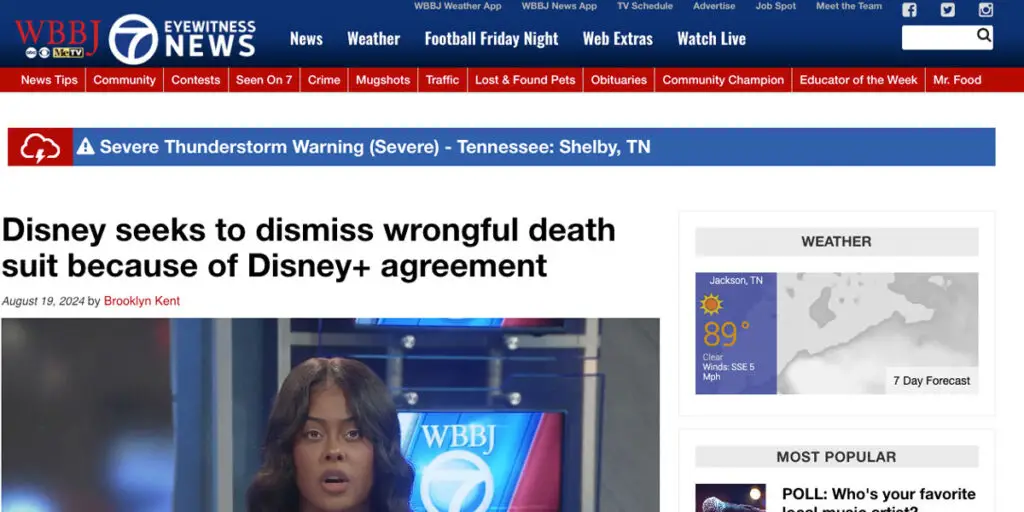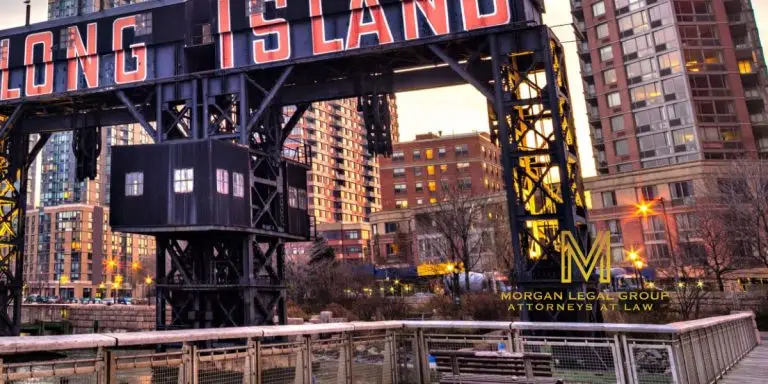Disney Seeks to Dismiss Wrongful Death Suit Due to Disney+ Agreement
The tragic loss of a loved one can lead to complex legal battles, particularly when large corporations are involved. Jeffrey Piccolo has filed a wrongful death suit against Disney after his wife, Kanokporn Tangsuan, died from an allergic reaction following a meal at Raglan Road, a restaurant in Disney Springs Park. This case, however, has taken an unexpected turn due to the fine print of Disney’s service agreements, highlighting a growing trend in how corporations handle liability through arbitration clauses.
The Case: Understanding the Legal Landscape
Russell Morgan, a legal expert and principal at Morgan Legal Group, explains that this lawsuit is ultimately about Kanokporn’s estate. Since she purchased both the Disney+ subscription and the park ticket, Disney is arguing that she had already agreed to arbitration for any legal disputes, unknowingly binding her estate to settle the wrongful death case outside of the traditional court system. Piccolo, as the legal representative, is now facing an arbitration clause that limits his ability to seek justice through the courts.
The Arbitration Dilemma
Arbitration has become a standard clause in many service agreements, from streaming platforms like Disney+ to everyday consumer products. According to Morgan, arbitration clauses are generally intended for disputes involving contracts, bargaining issues, and community disagreements. However, extending arbitration to serious matters like wrongful death raises concerns. “Deciding how much a wrongful death is worth should not be determined by a small panel of arbitrators but by a jury of peers,” Morgan argues.
The Implications of Arbitration in Wrongful Death Cases
In arbitration, the decision-making process is often handled by a handful of legal experts—typically two or three arbitrators—whose rulings are legally binding and not subject to appeal. This arrangement contrasts sharply with the jury system, where a group of peers deliberates on the case, potentially leading to a more balanced and public evaluation of the issues at hand. Morgan emphasizes that arbitration, in this context, serves to minimize bad press and limit financial liabilities for companies like Disney.
Why Arbitration Clauses Are Problematic
Arbitration clauses can significantly impact how justice is administered in wrongful death cases. “The arbitration process,” Morgan explains, “often sidelines victims’ rights by taking critical decisions out of the public judicial system and placing them into a private, less transparent process.” This shift can lead to outcomes that prioritize corporate interests over fair compensation and accountability.
Corporate Strategy: Protecting Image and Finances
Companies increasingly use arbitration clauses as a tool to avoid the negative publicity and unpredictability associated with jury trials. For Disney, transferring Piccolo’s wrongful death case to arbitration is a strategic move designed to keep the case out of the public eye and potentially reduce the size of any damages awarded. As Morgan points out, this approach reflects a broader trend where companies leverage legal tactics to protect their brand and bottom line, often at the expense of individuals seeking redress.
The Broader Impact on Consumers
Cases like Piccolo’s underscore the importance of being aware of what you’re signing up for when agreeing to the terms and conditions of any service. “Users of platforms like Disney+ need to be vigilant about what they’re agreeing to,” Morgan advises. Many consumers overlook the terms and conditions, often clicking through without a second thought. Morgan stresses, “Focus on the important parts—what happens if something goes wrong. Just read that part before you sign off.”
Legal Advice: Navigating Terms and Conditions
With the prevalence of arbitration clauses, consumers need to approach service agreements with greater caution. Morgan recommends that individuals take the time to review the terms, especially sections dealing with dispute resolution and liability. Although these sections are often dense and filled with legal jargon, understanding them can be crucial, particularly in severe cases such as wrongful death or significant financial disputes.
Steps to Protect Yourself
To better protect your rights, consider the following tips:
- Read Before You Agree: Always read the terms and conditions, focusing on sections related to dispute resolution and liability.
- Look for Arbitration Clauses: Identify whether the agreement includes an arbitration clause and understand its implications.
- Consult a Lawyer: If you are unsure about the terms, especially for significant agreements, consult with a legal professional who can guide you through the process.
- Negotiate When Possible: In some cases, particularly with business contracts, you may have the ability to negotiate terms that better protect your interests.
The Future of Arbitration in Legal Disputes
As more companies adopt arbitration clauses, the legal landscape continues to shift away from traditional courtrooms. While arbitration can offer benefits like reduced legal costs and faster resolutions, its application in cases involving personal injury or wrongful death remains controversial. Advocates like Morgan argue for legislative reforms that would limit the scope of arbitration in cases where public accountability and justice should take precedence.
Conclusion: A Call for Greater Transparency
The case against Disney serves as a critical reminder of the potential pitfalls of arbitration clauses in consumer agreements. While corporations seek to protect their interests, individuals must be vigilant and proactive in understanding their rights. At Morgan Legal Group, we are dedicated to advocating for fairness and transparency, ensuring that clients are fully informed of their legal standing, especially when facing powerful entities. As arbitration continues to grow in prevalence, it is more important than ever to be aware of your rights and to seek legal counsel when navigating complex agreements.
Contact Morgan Legal Group
If you have questions about arbitration clauses or need assistance with a legal dispute, contact Morgan Legal Group in New York City. Our experienced attorneys are here to help you understand your rights and navigate the legal system effectively.







